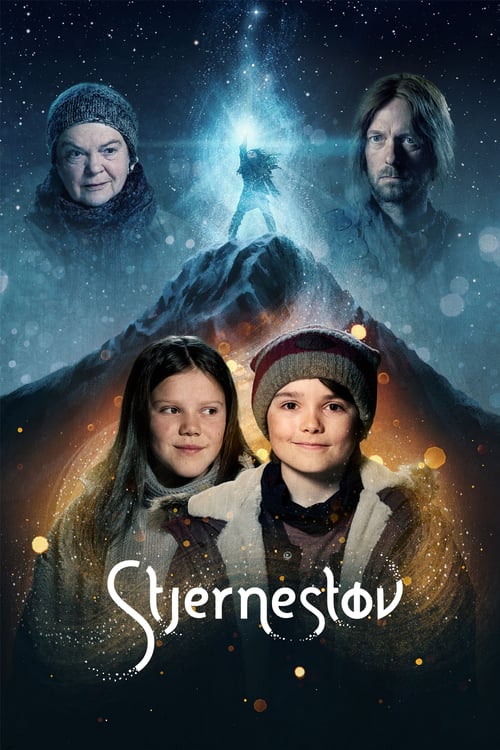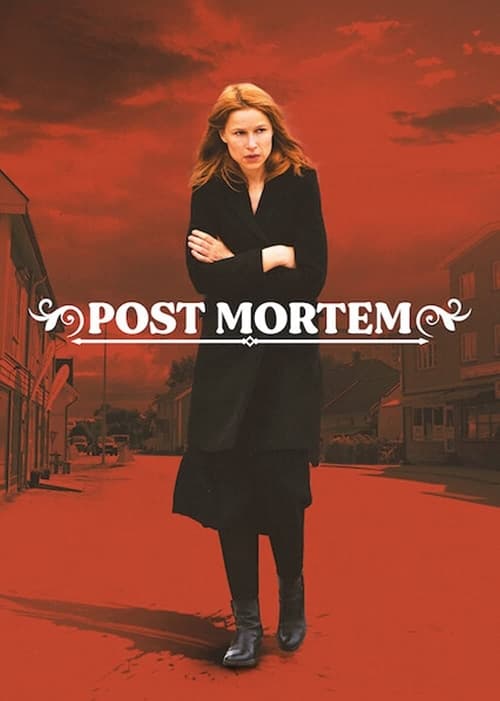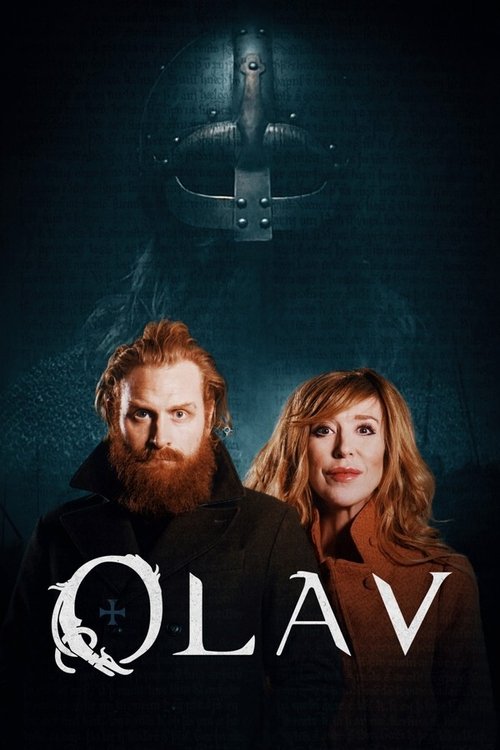
Ask Your Own Question
What is the plot?
In the opening scene of "Power to the People," we find Magne, the protagonist, grappling with the aftermath of the previous events. He is visibly troubled, reflecting on the growing tensions between the Jutuls, the powerful family that embodies the old Norse gods, and his own family. Magne's internal conflict is palpable as he struggles with his identity and the responsibilities that come with his newfound powers. He is determined to protect his friends and family but feels the weight of the expectations placed upon him.
The scene shifts to the Jutul family, where we see Fjor and Saxa discussing their plans to regain control over the town and its resources. They are frustrated by the increasing influence of Magne and his friends, who are rallying the townspeople against the Jutuls. Fjor expresses his desire to take more aggressive action, while Saxa is more cautious, suggesting they should manipulate the situation to their advantage. Their conversation reveals the growing rift within the Jutul family regarding how to handle the threat posed by Magne.
Meanwhile, Magne meets with his friends, including Isolde and Laurits, to strategize their next move. They discuss the importance of uniting the townspeople against the Jutuls and the need to expose their corrupt practices. Magne's determination to stand up against the Jutuls is evident, and he inspires his friends to take action. They decide to organize a public meeting to rally support and share their concerns about the Jutuls' influence over the town.
As the public meeting unfolds, tensions rise. Magne speaks passionately about the need for change and the importance of standing up against the Jutuls. The townspeople are initially hesitant, but Magne's charisma and conviction begin to sway them. However, the Jutuls are not far behind, and they send a message to the crowd, attempting to intimidate them into submission. The atmosphere becomes charged as the townspeople weigh their options, caught between fear and the desire for empowerment.
In a pivotal moment, Laurits takes a bold step by revealing a secret about the Jutuls that he has uncovered. He shares evidence of their unethical practices, which shocks the crowd and ignites their anger. This revelation serves as a turning point, galvanizing the townspeople to stand with Magne and his friends. The Jutuls, realizing their grip on the town is slipping, become increasingly desperate and aggressive in their tactics.
The episode escalates as the Jutuls retaliate against the townspeople's newfound unity. They orchestrate a series of sabotage attempts to undermine the public meeting and discredit Magne and his friends. These attempts include spreading false rumors and creating chaos during the gathering. Magne and his allies must navigate these challenges while maintaining their resolve to fight for the town's future.
As the confrontation between the Jutuls and the townspeople intensifies, Magne faces a critical decision. He must choose between using his powers to retaliate against the Jutuls or finding a way to unite the community without resorting to violence. This internal struggle highlights his growth as a character, as he weighs the consequences of his actions and the impact they will have on those he cares about.
The episode culminates in a dramatic showdown between Magne and the Jutuls. In a tense confrontation, Magne confronts Fjor, leading to a physical altercation that showcases their contrasting ideologies. Magne fights not just for himself but for the people of the town, channeling his powers in a way that reflects his commitment to justice. The fight is intense, filled with emotional stakes as both characters grapple with their identities and the legacies they wish to leave behind.
In the aftermath of the confrontation, the townspeople rally around Magne, emboldened by his bravery. They begin to take a stand against the Jutuls, signaling a shift in power dynamics within the community. The episode ends on a cliffhanger, with the Jutuls realizing that their control is slipping and plotting their next move, setting the stage for further conflict in the season.
What is the ending?
In the ending of "Ragnarok" Season 2, Episode 3 titled "Power to the People," the tension escalates as the characters confront their destinies. Magne faces off against the Jutuls, particularly Fjor, in a battle that tests his powers and resolve. The episode culminates in a significant moment where Magne's strength and determination shine through, leading to a pivotal shift in the balance of power. Meanwhile, the relationships between the characters deepen, revealing their vulnerabilities and motivations. The episode concludes with a sense of impending conflict, setting the stage for future confrontations.
As the episode unfolds, we begin with Magne grappling with the weight of his responsibilities. He stands at the edge of a cliff, the wind whipping around him, symbolizing the turmoil within. His internal struggle is palpable; he knows he must confront the Jutuls but is burdened by the fear of failure. The camera captures his furrowed brow and clenched fists, emphasizing his determination.
In the next scene, we shift to the Jutul family, who are gathered in their lavish home. The atmosphere is tense as they discuss their plans to maintain their power over the town. Fjor, in particular, is restless, eager to assert his dominance. The opulence of their surroundings contrasts sharply with the brewing conflict, highlighting the disparity between the Jutuls and the townspeople.
As the episode progresses, we see Magne rallying his friends, including his brother, Laurits, and their allies. They gather in a secluded spot, strategizing their next move against the Jutuls. The camaraderie among them is evident; they share laughter and moments of levity, but the underlying tension is always present. Magne's leadership qualities begin to emerge as he inspires his friends to stand up against the Jutuls, emphasizing the importance of unity and strength in numbers.
The pivotal confrontation occurs when Magne and Fjor finally face off. The setting is dramatic, with dark clouds looming overhead, mirroring the intensity of their clash. As they engage in battle, the visual effects showcase Magne's growing powers, which he harnesses with newfound confidence. The fight is brutal, with both characters pushing their limits. Fjor's frustration mounts as he realizes that Magne is not the weakling he once perceived him to be.
In a climactic moment, Magne taps into his full potential, unleashing a surge of energy that overwhelms Fjor. The scene is charged with emotion as Magne's determination to protect his friends and family fuels his strength. Fjor, realizing he is outmatched, retreats, leaving a sense of uncertainty in the air. This moment signifies a turning point for Magne, as he embraces his identity and the responsibilities that come with it.
As the episode draws to a close, we see the aftermath of the confrontation. Magne stands with his friends, a sense of victory washing over them, but the weight of the ongoing conflict looms large. Laurits, who has been navigating his own journey of self-discovery, shares a moment of understanding with Magne, reinforcing their bond as brothers.
The final scenes hint at the challenges that lie ahead. The Jutuls are not defeated; their power remains a threat, and the town's future hangs in the balance. The episode ends on a note of anticipation, with the characters poised for the battles to come, each grappling with their own motivations and the consequences of their choices.
In summary, the fates of the main characters are intertwined with the escalating conflict. Magne emerges stronger and more resolute, while Fjor is left to reassess his position. Laurits continues to explore his identity, and the Jutuls remain a formidable force, setting the stage for future confrontations and character developments.
Is there a post-credit scene?
In "Ragnarok" Season 2, Episode 3 titled "Power to the People," there is indeed a post-credit scene. This scene unfolds in a dimly lit, atmospheric setting, creating a sense of tension and anticipation.
The camera pans to a secluded area where a group of individuals is gathered, their faces obscured in shadow. They are engaged in a hushed conversation, their body language indicating urgency and secrecy. As the dialogue progresses, it becomes clear that they are discussing the growing influence of the Jutul family and their plans to consolidate power in the town of Edda.
One figure, more prominent than the others, speaks with a tone of determination, suggesting that they need to take action against the Jutuls to protect the community. The scene captures the emotional weight of their words, highlighting the fear and desperation felt by the townspeople as they grapple with the looming threat posed by the Jutuls.
The camera then shifts focus to a close-up of a symbolic object, perhaps a piece of ancient Norse lore or a weapon, hinting at the potential for conflict and the brewing resistance against the Jutuls. The scene ends on a cliffhanger, leaving viewers with a sense of foreboding and excitement for what is to come, as the stakes in Edda continue to rise.
What significant event occurs at the end of the episode that sets up future conflicts?
At the end of the episode, a significant event occurs when the townspeople, fueled by the escalating tensions with the Jutuls, decide to take a stand against them. This collective action marks a turning point, setting the stage for future conflicts as alliances are tested and the battle between the gods and the Jutuls intensifies.
What new powers do the main characters discover in this episode?
In this episode, the main characters, particularly Magne and his brother Laurits, begin to explore and understand their powers more deeply. Magne grapples with his abilities as the god of thunder, while Laurits, who has been struggling with his identity, starts to embrace his connection to Loki and the chaos that comes with it.
How does the conflict between the Jutuls and the humans escalate in this episode?
The conflict escalates as the Jutuls, particularly Fjor, become more aggressive in their attempts to assert dominance over the town. This episode showcases a pivotal moment where the Jutuls' actions lead to a public confrontation, heightening tensions and forcing the townspeople to choose sides.
What role does the character of Isolde play in this episode?
Isolde plays a crucial role as she becomes a confidante for Magne, helping him navigate his feelings of isolation and the weight of his responsibilities. Her support is vital as she encourages him to embrace his identity and powers, providing emotional grounding amidst the chaos.
How does Laurits' relationship with his mother evolve in this episode?
Laurits' relationship with his mother, who is increasingly concerned about his behavior and choices, becomes strained. He feels misunderstood and seeks validation for his emerging powers, leading to a confrontation that reveals deeper family dynamics and the pressure he feels to live up to expectations.
Is this family friendly?
In "Ragnarok" Season 2, Episode 3 titled "Power to the People," there are several elements that may be considered objectionable or upsetting for children or sensitive viewers.
-
Violence and Conflict: The episode features scenes of physical confrontations and tension between characters, which may be intense for younger viewers.
-
Themes of Betrayal and Manipulation: The emotional weight of betrayal among characters can be distressing, as it explores complex relationships and moral dilemmas.
-
Supernatural Elements: The presence of mythological themes and supernatural powers may be unsettling for some, particularly if they are not familiar with such concepts.
-
Emotional Turmoil: Characters experience significant emotional struggles, including feelings of anger, fear, and despair, which could be heavy for sensitive audiences.
-
Social Issues: The episode touches on themes of power dynamics and societal conflict, which may provoke thought but could also be challenging for younger viewers to fully grasp.
These aspects contribute to a narrative that, while engaging, may not be suitable for all children or sensitive individuals.






















